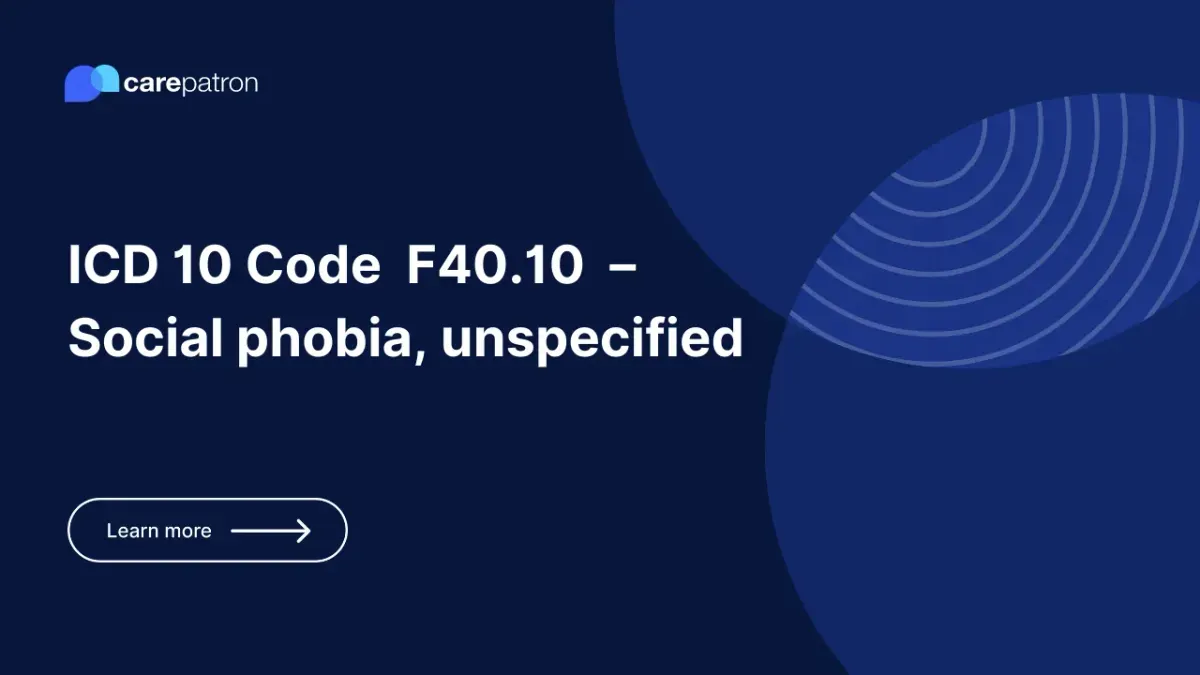
F40.10 – Social phobia, unspecified
Learn about the F40.10 ICD-10-CM code for social phobia, unspecified through this guide.
Use Code
Commonly asked questions
Symptoms include intense fear of social situations, excessive self-consciousness, fear of judgment, and avoidance of social activities.
Diagnosis involves thoroughly evaluating the patient's medical history and symptoms. Psychological questionnaires and interviews may be used.
Treatment often involves cognitive-behavioral therapy, medications, or a combination of both. Social skills training will also help with developing social/communication skills.
EHR and practice management software
Get started for free
*No credit card required
Free
$0/usd
Unlimited clients
Telehealth
1GB of storage
Client portal text
Automated billing and online payments
